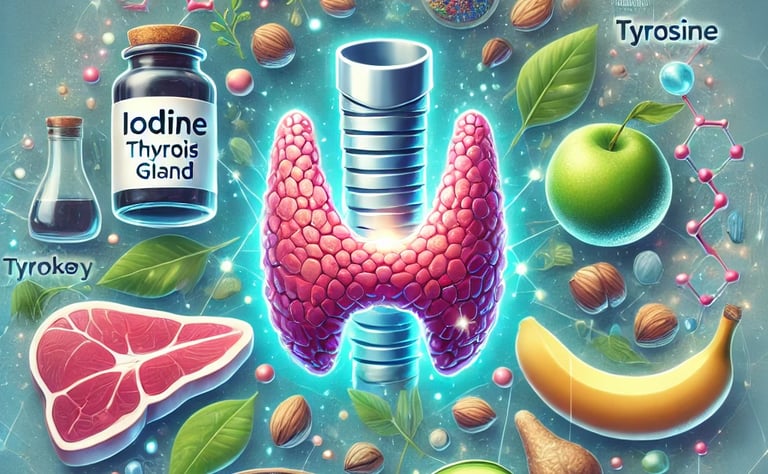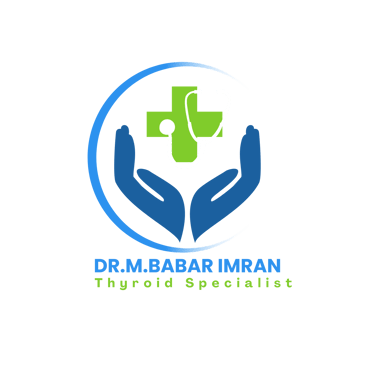The Thyroid’s Key Ingredients: Tyrosine and Iodine
Our thyroid relies on tyrosine and iodine to produce essential hormones. While tyrosine is abundant in foods like fish, nuts, and avocados, iodine is absorbed directly by the thyroid. Though iodine deficiency has decreased globally, excessive iodine intake in wealthy nations now poses a risk for thyroid disorders.
3/18/20251 min read


Our thyroid makes hormones by combining two key ingredients: tyrosine and iodine. Tyrosine is an amino acid that can be found in a lot of foods, like turkey, avocados, bananas, fish, and nuts. This means that we probably eat enough of it. Iodine, the second ingredient, can only be taken in by our thyroid. Every day, we only need a small amount of iodine (50–200 mcg for most people and 250–350 mcg for women who are pregnant or nursing). The thyroid quickly absorbs it.
A lack of iodine used to be a big problem, but now it's not a problem in places like Japan and the US because iodine is in food, salt, and medicines. There is too much iodine in many wealthy countries today, which can cause problems with the thyroid. Fewer people are getting iodine shortage every year, but it is still a problem in some developing countries. It used to be that 112 countries had serious iodine deficiency, but now none of them do. But 30 countries, including the US and Japan, are at risk for thyroid disease that is brought on by too much iodine.

Contact
Get in touch for inquiries or appointments.
Connect
muhammadbabarimran@yahoo.com
03001551966
© 2025. All rights reserved. Dr.Muhammad Babar Imran
